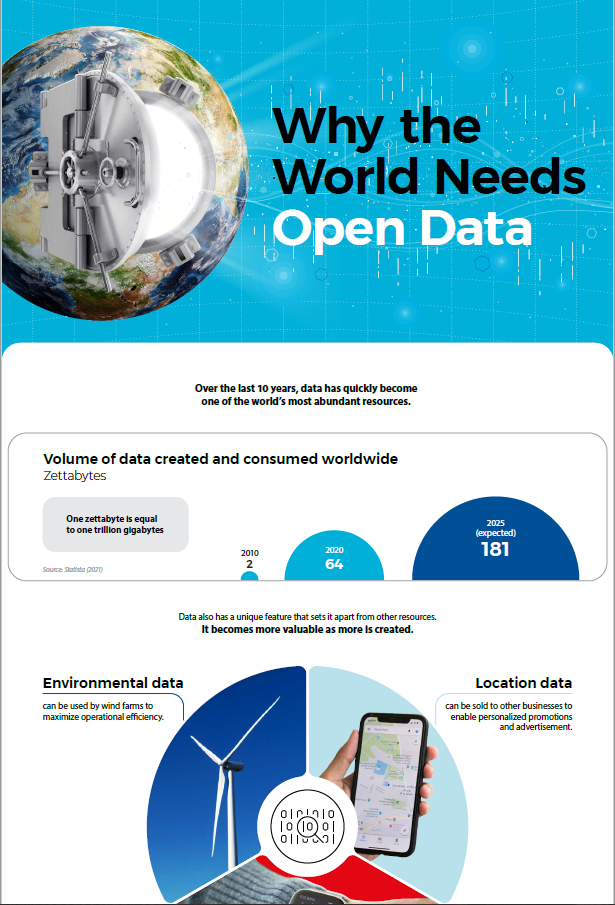Digital trade
Why the world needs open data
Published 03 November 2021
Data has become indispensable to economic growth. As a critical asset for a future that is set to be digital, proper governance of data holds the key to unlocking solutions for many economic and social issues. To understand the significance of open data, our latest infographic looks at the value of data flows and restrictions that are in place.
Over the last 10 years, data has quickly become one of the world’s most abundant resources. It also has a unique feature that sets it apart from other resources: It becomes more valuable as more is created. But harnessing its full potential requires data to flow freely. In our highly digitized world, these conditions are pivotal for facilitating global trade and e-commerce.
Meanwhile, a new power struggle emerges; regulatory regimes around the world are increasingly pushing to territorialize and claim jurisdiction over their citizens' data. Common rationales for data localization include security concerns, surveillance, and gaining an economic advantage.
But advocates of data sovereignty are misguided. Efforts to restrict data flows can reduce trade, slow productivity, and increase prices for businesses and consumers. They also constrain stronger cooperation for global cybersecurity and potentially amplify existing inequalities in development, with small economies bearing the brunt.
Our latest infographic illustrates the importance of open data and the risks of enacting more barriers to cross-border data flows. To learn more, read our series of reports – including by experts Susan Ariel Aaronson and Deborah Elms – about the challenges and opportunities posed by data governance.
© The Hinrich Foundation. See our website Terms and conditions for our copyright and reprint policy. All statements of fact and the views, conclusions and recommendations expressed in this publication are the sole responsibility of the author(s).





